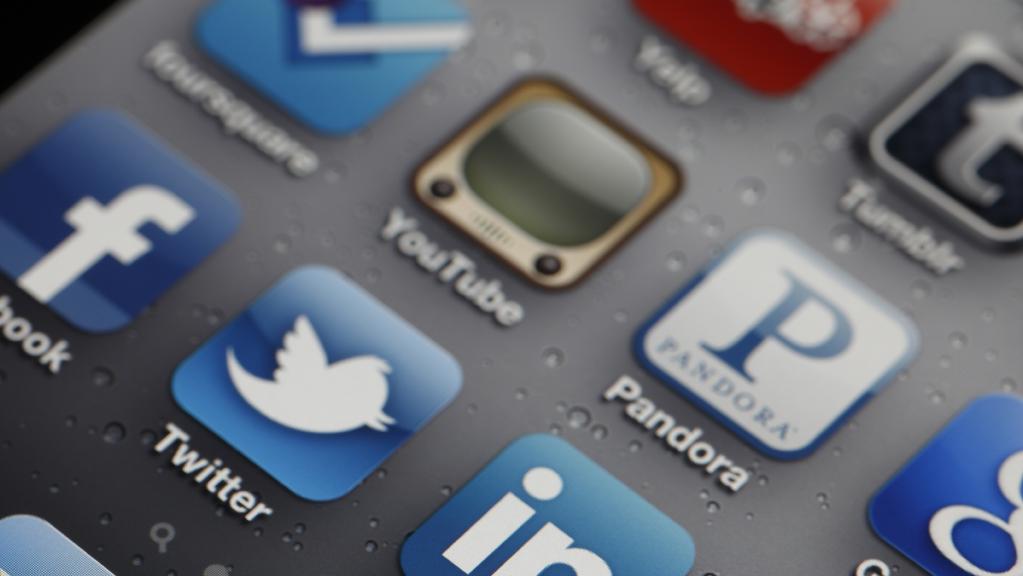NEARLY three-quarters of Australians use social media. On average, they’re spending the equivalent of half a day (12.5 hours) each week on Facebook alone. For many, it’s become more than a way to connect — it’s a habit.
But how hard is that habit to crack?
Clinical psychologist Louise Adams analysed the results of our experiment and says: “Social media is a convenient and interesting feature of modern life but because it’s so compelling, it’s easy to fall into the habit of frequent checking and we can lose hours of our precious time.
“Don’t forget that the real world deserves your full attention — without devices — and make sure the time you do spend online is quality rather than quantity.”
We asked four social media users to limit their scrolling, liking and posting to 15 minutes a day for a week. Here’s what happened …
BRIANNA SCULLY

Age: 20
Occupation: Video producer
Daily social media use: At least four hours
Best bit: I was a lot more productive. Instead of scrolling through my phone, I exercised, cooked dinners and got organised for work.
Hardest part: I’d often reach for my phone to fill in time and realise I couldn’t. When I uploaded something to Facebook, I kept wanting to check the “likes” and comments. I also missed messages from friends and family, and was concerned I came off as rude.
Most surprising: I was worried I’d miss a whole heap of notifications but I found that the less I engaged, the less people engaged with me. Facebook was the hardest to restrict but by turning my notifications off, I didn’t know what I was missing.
Will you make any changes?
I want to restrict my social media use in social situations. When I was out to dinner with friends, they all spent time online — it was like the event wasn’t worth attending unless they could get an Instagram shot or funny Snapchat. It made me realise I had that mindset too.
Adams says: Brianna’s decision to be present in social situations rather than record them for Snapchat was a great result. Recording a moment isn’t as meaningful as being in it.
ANDREW WARREN

Age: 30
Occupation: Musician, teacher
Daily social media use: 1-2 hours
Best bit: I was more productive at work
and more proactive when it came to getting things done at home. When I sat down to watch TV,
I was more focused and less distracted because I wasn’t scrolling through Facebook.
Hardest part: Having to monitor the time so I didn’t go over my 15-minute limit.
Most surprising: How quickly 15 minutes can go by and realising that opening up my Facebook app had become a habit.
Will you make any changes?
I don’t think I’ll limit my social media use but I’m going to try to resist the urge to check my phone while I’m having downtime so I can be in the moment.
Adams says: Prior to the experiment, Andrew reported that social media had no impact on his mood, yet limiting his use improved his productivity and concentration. This suggests he may not have noticed how social media was impacting him generally. Cutting down his time online also helped Andrew to become less of a “phone slave” and more able to be present.
LINDA MOORE

Age: 50
Occupation: Medical receptionist
Daily social media use: 2 hours
Best bit: I watched more TV in the evening.
Hardest part: For me, social media isn’t the most important thing, so restricting it wasn’t the problem. But as it has become such a normal part of my life, it was difficult to remember to leave the phone alone when I was bored.
Most surprising: I found myself, purely out of habit, reaching for my phone or laptop to scroll through Facebook.
Will you make any changes?
No. I spend a fair amount of time scrolling through Facebook but I don’t see that as a problem. It’s a great way to keep up with friends.
Adams says: As someone who grew up in the pre-social media era, it was interesting to see Linda didn’t feel out of the loop when she limited her use.
CLAIRE NASS

Age: 29
Occupation: Registered nurse
Daily social media use: 2 hours
Best bit: I read more of my book and I enjoyed not having my phone on me all the time.
Hardest part: Feeling out of the loop [by not checking Facebook].
Most surprising: I found the time before bed more relaxing because I wasn’t looking at my phone.
Will you make any changes?
Yes. Social media isn’t the first thing I think of when I reach for my phone now.
Adams says: Reducing her social media use helped Claire to improve her outlook on life.
HOW MUCH IS TOO MUCH?
“There’s no ‘right’ amount of social media time, as everyone is different,” Adams says. But there are clues that your use might be getting out of control:
PRODUCTIVITY SUFFERS
Your online life is causing you to fall behind at work, study or in daily chores.
RELATIONSHIPS ARE AFFECTED
Real-life relationships are being neglected in favour of your online crew. For example, checking Facebook and ignoring your kids.
LACKING SLEEP
Social media keeps you up until the wee hours, and you suffer the next day.
SOCIAL DISTRACTION
It is becoming impossible to sit through a conversation or meal without checking your phone.
LOSING TIME
You have every intention of just checking in but then still being on social media hours later.
FEELING BAD
Social media is making you feel negative about your body or achievements.
6 TIPS FOR KICKING THE HABIT
1. Write down all the social media you’re using.
2. For each type of social media, ask yourself if your use is mainly fun, productive or habitual.
3. Keep enjoying checking in with the fun and productive ones.
4. Cut down on the habitual ones. This could be by banning yourself from checking your phone while at the dinner table, for example.
5. Stay in tune with how your social media use is affecting your mood and get rid of anything that makes you feel down.
6. Cut your social media use down to 15 minutes each day for seven days, then decide how much time being “on social” suits you
[Source:-Daily Telegraph]








